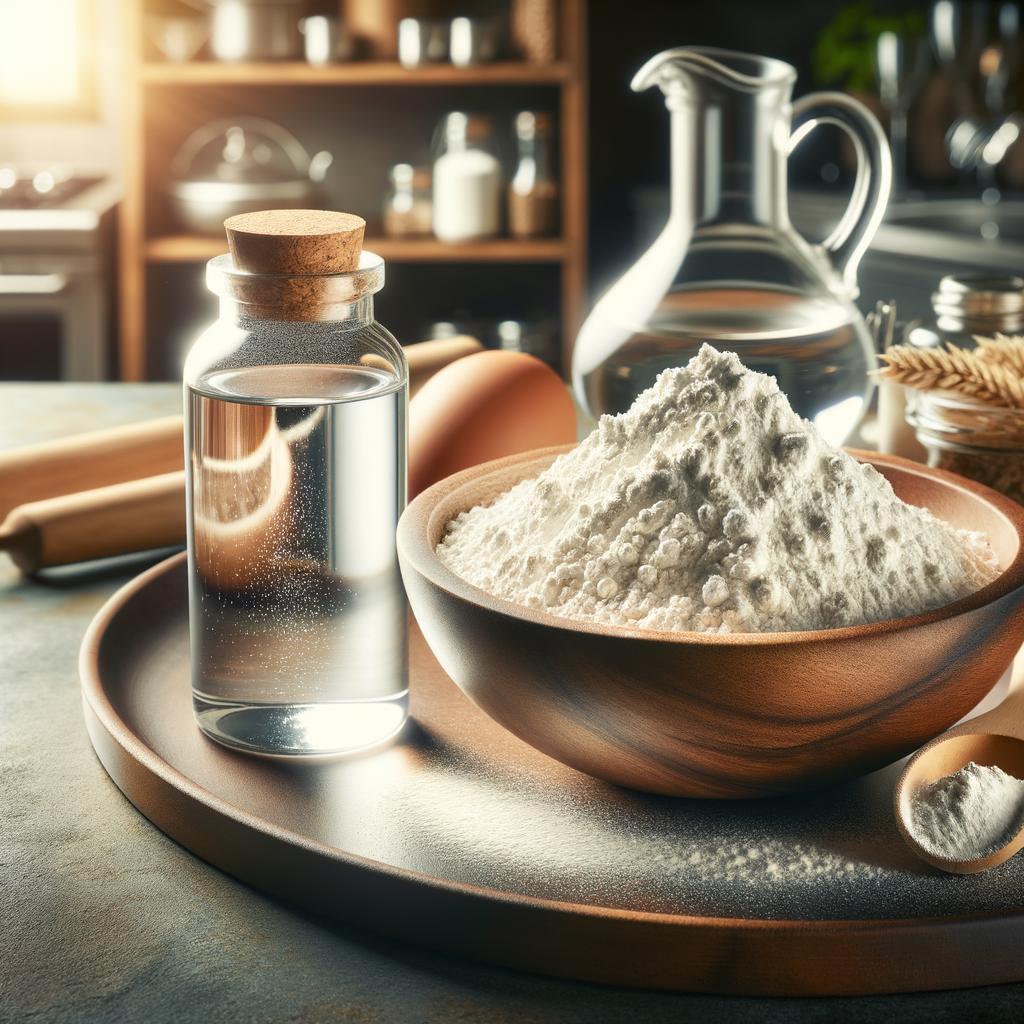Flour and Water

Description
Flour, one of the most fundamental ingredients in the culinary world, is a fine powder obtained by grinding raw grains or roots. Its color can range from white to off-white, depending on the type of grain used. The texture is soft, powdery, and can be slightly grainy to the touch. Its flavor profile is largely neutral, acting as a blank canvas for other ingredients to shine.
Water, the elixir of life, is colorless, tasteless, and odorless. It appears crystal clear and feels wet and refreshing to the touch. Despite its apparent simplicity, water plays a critical role in the culinary world, acting as a solvent, temperature regulator, and hydration agent.
Primary Uses
Flour is a versatile ingredient used in a myriad of dishes across all cuisines. It forms the backbone of bread, cakes, pastries, and pasta, and is used as a thickening agent in sauces and gravies. Water, on the other hand, is used in virtually every cooking process, from boiling and steaming to braising and poaching.
Flour mixed with water creates a simple yet magical concoction used to make dough for bread, pasta, and pastries. In non-culinary uses, flour and water paste has been used as a natural adhesive, while water is essential for life itself, hydrating the body and facilitating numerous biological processes.
History
The use of flour dates back to the Stone Age, where primitive tools were used to grind grains into a coarse flour. Over time, the process was refined, leading to the fine, powdery flour we know today. The humble combination of flour and water has been the cornerstone of many ancient civilizations' diets, from the flatbreads of the Middle East to the noodles of East Asia.
Water, as old as the earth itself, has been revered and respected throughout history. Its importance in cooking was recognized early on, with ancient civilizations developing sophisticated methods to collect, store, and transport water.
Nutritional Information
Flour, particularly whole grain varieties, is rich in fiber and essential nutrients like B-vitamins, iron, and magnesium. However, refined flour can lack these nutrients, leading to a rise in the popularity of whole grain alternatives.
Water, while not traditionally viewed as a source of nutrition, is vital for maintaining hydration and facilitating various bodily functions. It also helps in the absorption of nutrients from food.
Together, flour and water, despite their simplicity, form the basis of many nutritious foods, providing sustenance and nourishment to billions worldwide.

